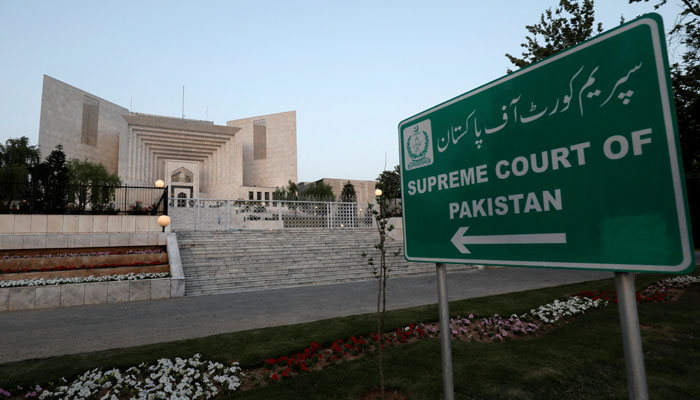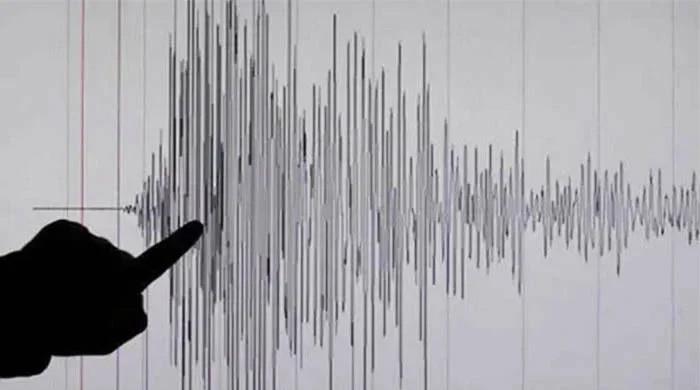White powder in threat letters sent to judges contained '10% arsenic'
Investigators obtain videos of CCTV cameras installed near letterboxes in Rawalpindi
April 05, 2024

- Another LHC judge receives letter.
- Forensic tests reveal letters contained ‘arsenic’.
- PM says govt to unearth plot behind letters.
ISLAMABAD: The Counter Terrorism Department (CTD) has received the forensic report of the powder found in mysterious letters sent to the judges of the high courts and the Supreme Court, sources told Geo News.
At least four judges of the SC, eight of the Islamabad High Court and six of the Lahore High Court received letters, creating fear in the judiciary.
The latest judge to receive the threatening letter was LHC's Justice Ali Baqar Najafi.
The CTD lodged two FIRs against unknown people and launched an inquiry into the matter.
The sources disclosed that arsenic mixed in white powder was found in the letters. They further revealed that the powder contained 10% arsenic, adding that a higher ratio of the material can be “very poisonous” and harmful to the human body and can affect the nervous system upon inhalation.
The investigators have obtained the videos of the CCTV cameras installed near the letterboxes in the sub-divisional post office Satellite Town, Rawalpindi.
The sources shared that the suspects in the videos are being identified with the help of Nadra.
Earlier, the judges of the IHC including the chief justice received the letters containing the white powder which was believed to be anthrax.
Later, CJP Qazi Faez Isa and three other SC judges including Justice Athar Minallah, Justice Jamal Khan Mandokhail, and Justice Aminuddin received similar letters.
After this, five LHC judges were sent letters while Justice Baqar Najvi received a similar letter today.
Amid calls to probe the matter mount, Prime Minister Shehbaz Sharif has promised the government would probe the matter of threat letters received by judges with suspicious powder, with a sense of responsibility to uncover the reality.
Addressing the federal cabinet, the prime minister observed that the sensitive matter should not be given a political colour.












